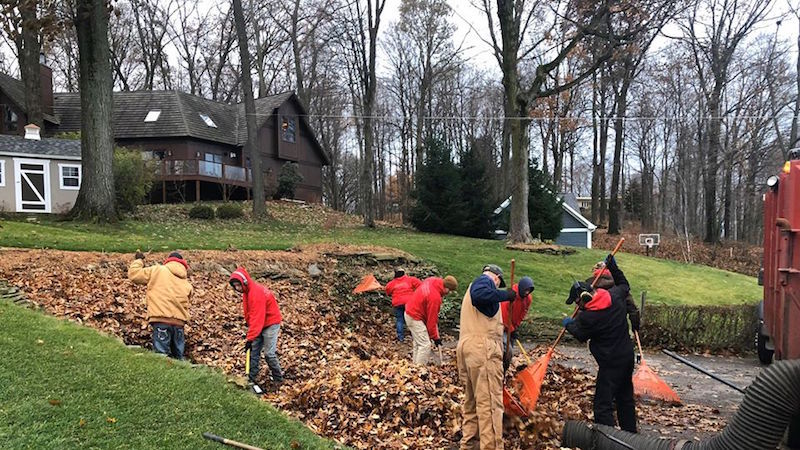Small businesses in Michigan are barely keeping afloat and some say they cannot survive much longer under the conditions of Gov. Gretchen Whitmer’s stay-at-home order.
Whitmer, a Democrat, extended and expanded the order on April 9 and included even more restrictions, leading many to question her decision-making.
Several small business owners in phone interviews with the Michigan Business Daily said their enterprises are being severely impacted and some cannot survive much longer.
Jeremy Kanaga, owner of Arlene’s Truck Stop and partner at Cricket Club, both in Battle Creek, said sales are down 90 percent at both his businesses and he is trying to keep a skeleton crew of 50 percent of his employees.
“It’s becoming devastating; in fact, it’s a dire situation,” Kanaga said. “I’m losing all the faith and everything I have in the state to help us out in a situation that is so dire. We’re not seeing anything from the state, except talk.”
Kanaga said Whitmer’s decisions do not constitute sound judgment and he questions who is consulting the governor.
“There’s zero common sense. I’d like to know who she is consulting for these ideas? Because she’s not consulting business owners,” he said. “I’ve never seen anything like it in my life—I’ve been in this business for 35 years.”
For Rob Grosteffon, president and co-owner of Outdoor Landscape & Supply, the governor’s decision to make landscaping a nonessential business is confusing as he can conduct business without having any contact with customers.
“We can do what we do with zero contact," he said. "We can send employees in individual vehicles so they are one person to a vehicle. When we are doing our job, we don’t need to be in contact. Even payment can be paid by credit card over the phone.”
Grosteffon’s business and many in the green industry, he said, depend on the winter's snow to get through until their busiest spring season which begins in April. The industry had a difficult winter with little or no snow. Now they’ve been ordered not to work by Whitmer even though they can complete jobs with no customer contact or even contact with co-workers.
“Our governor is not acting rationally," Grosteffon said.
Kanaga agrees that Whitmer’s decisions continue to make a challenging time even worse: “This just makes everything she does, it just keeps hitting like a big stone wall of nothing for helping anyone in this state. To keep putting regulations on us.”
Tom Candrell, president and co-owner of the hardware store, Springfield Do It Center, is considered an essential business and can remain open. He said it is both a blessing and a curse.
"We’ve seen an increase in paint sales," he said. "More importantly, people are painting for their mental health. Our hardware store is open and it’s a blessing for our employees because we—and I refer to me and my brother, too, as we are employees and co-owners—we still have a job.”
But he and his workers are exposed to the public seven days a week and that is a concern.
“We’re concerned about the physical and emotional well-being of our staff," he said. "These aren’t ordinary times for us. We have new risks. Our possibilities for exposure are higher. The other big thing---about the curse---some customers are suffering terribly and that hurts us. My friends are all suffering in so many ways and it hurts. I’m seeing real people getting hurt.”
Business owners say they know the COVID-19 situation is extremely serious but seek only sound guidance from state leaders.
“I get it, we’re in a pandemic. I get it, it’s horrible, and I understand people are dying,” said Grosteffon. “Maybe now may not be the time to build the deck; maybe now isn’t the time to build a retaining wall.”
Grosteffon said general maintenance on the exterior of one’s home—including gutter cleaning and leaf clean-up that is important to prevent a repeat of the triple EEE mosquito-born illnesses and deaths experienced last year—could be completed.
“This virus is horrible, and is affecting the seniors, and seems like it’s affecting an certain ethnicity. I’m all about fighting this, and we’re all in this together,” Kanaga said. “It’s like we’re on life support. The money is eventually going to run out, which is my own money and my business partner’s own money, and once that runs out, we will close our doors.”
He said his businesses would have closed already were it not for a loan from the nonprofit group, Battle Creek Unlimited.
The small business owners all know that some will not survive if Whitmer doesn't start to make sound decisions going forward.
“Where’s her task force of people?” Kanaga asked. “Who are the people she is getting her information from? Maybe they should stand in the room with her---like the president has his team in the room with him. Why don’t you surround yourself with the people from Michigan that matter?”
“What she’s doing to our economy, I truly believe Is irreversible,” Grosteffon said. While he believes he can weather this economic storm, he says for some business the damages will be "devastating.”
“The government needs to step up and tell us what we need to do as business owners," Candrell said. "They need to provide guidelines so business can open up.”

